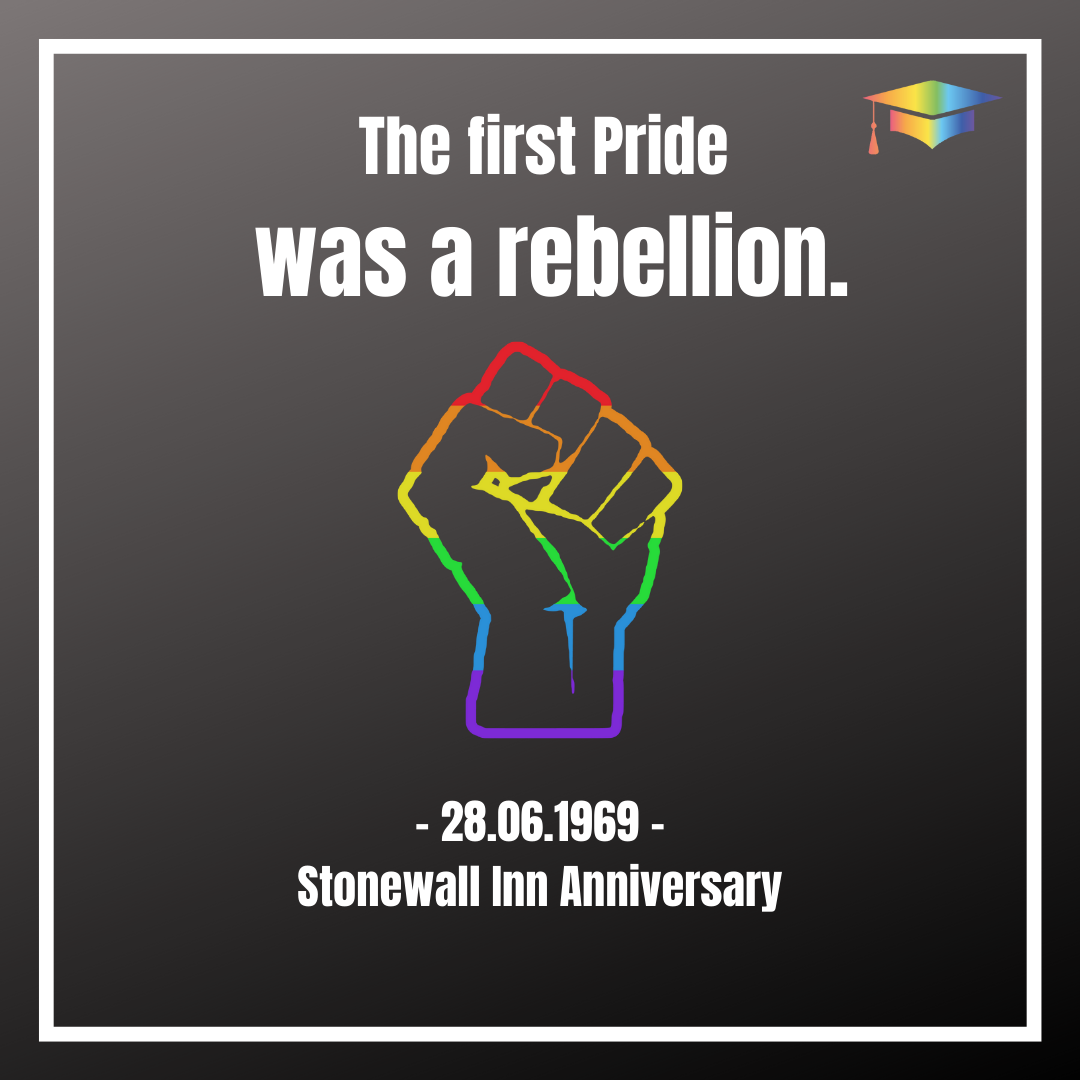Did you know? The first pride was a rebellion.
June 28, 1969 marks the day known as the “birth of Pride.” In case you’re wondering why, today we’re taking a trip into history, more specifically, to the 1960s in New York, USA. At the time, there were very few places where queer people could meet, but where police raids regularly took place. The bar “Stonewall Inn” in Greenwich Village was one of these places; on June 28, 1969, one of the raids took place, during which the police stormed the bar and forced the visitors* to leave. On that day, however, everything went differently: instead of following the police’s orders, as usual, the bar’s visitors resisted and started throwing everything they could get their hands on at the policemen. Among the protesters, one trans* woman named Marsha P. Johnson is particularly notable; she was a major contributor to the protests. In the days that followed, other residents and queer individuals showed solidarity with the protesters; the protests on Christopher Street, where the bar was located, lasted five days.
A year later, on June 28, 1970, a demonstration took place on Christopher Street to commemorate the Stonewall Inn uprising. In the beginning, there were only a few hundred participants, but over the years the number of demonstrators continued to grow. Over time, demonstrations began in other countries as well; in Germany, the first Pride demos took place in 1979. Today, Pride is commonplace in many cities in Germany; however, Pride parades usually seem like big celebrations rather than demos, as they are otherwise known in the real sense. Nowadays, queer people are more socially accepted than 50 years ago, but queer hostility and (structural) discrimination of queer people have unfortunately not disappeared from society. Queer activism is still relevant today, whether in the form of demonstrations, education, rallies, speaking engagements, or other formats. Pride is a great event full of color, diversity, and pride, but what often goes under the radar is this: the Pride event is first and foremost political. So that one does not lose sight of exactly that, it is all the more important that one learns history; that one learns about how it all began. That is exactly why we remember this day today.
